The Key Principles of Traditional Nutrition and How They Differ from Modern Dietary Approaches
The Key Principles of Traditional Nutrition and How They Differ from Modern Dietary Approaches
In the world of nutrition, there's an ongoing debate between those who advocate for traditional, ancestral eating patterns and those who follow modern dietary guidelines often influenced by large industries. On one side, we have traditional nutrition principles, rooted in thousands of years of cultural practices and nutrient-dense foods. On the other, we have modern dietary approaches heavily influenced by Big Food and Big Pharma, which, rather than promoting true health, often contribute to the epidemic of chronic illness.
Let’s explore the core principles of traditional nutrition, and contrast them with the modern dietary approaches that have become prevalent today.
1. Whole, Unprocessed Foods vs. Highly Processed Foods
Traditional nutrition is grounded in the consumption of whole, unprocessed foods that have been a part of human diets for centuries. These include grass-fed meats, pastured eggs, raw dairy, wild-caught fish, fermented vegetables, and other nutrient-dense, minimally altered foods. The focus is on real food, not products made in factories.
Modern dietary approaches, particularly those influenced by Big Food, rely heavily on processed foods. Highly refined oils (like canola and soybean), synthetic additives, artificial sweeteners, and packaged convenience foods dominate the modern diet. These foods are often stripped of their natural nutrients and replaced with synthetic versions that the body doesn’t recognize or process as effectively. This contributes to inflammation, nutrient deficiencies, and a cycle of poor health outcomes.
2. Nutrient Density vs. Empty Calories
One of the cornerstones of traditional nutrition is nutrient density. Traditional cultures prized foods that were rich in fat-soluble vitamins (A, D, E, K), minerals, and essential fatty acids. Sacred foods like liver, egg yolks, butter from grass-fed cows, and fermented cod liver oil were considered vital for health and fertility. These foods offer a concentration of essential nutrients, supporting the body’s ability to heal, grow, and function optimally.
In contrast, modern dietary guidelines often promote low-fat, low-cholesterol, and highly processed foods, which are frequently devoid of critical nutrients. These "empty calories" provide energy but little in the way of true nourishment. As a result, even people who follow these guidelines can suffer from malnutrition while overeating. The focus on calorie counting, rather than on nutrient quality, leaves people deficient in essential vitamins and minerals, leading to chronic diseases.
3. Healthy Fats vs. Industrial Seed Oils
Traditional nutrition embraces healthy fats as the foundation of a well-balanced diet. Saturated fats from animal products (like butter, ghee, tallow) and naturally occurring oils from coconuts, avocados, and olives have been consumed by humans for centuries. These fats are critical for brain health, hormone balance, and cellular integrity.
Modern dietary guidelines, driven by industry influence, have vilified these natural fats and instead promote industrial seed oils (like canola, soybean, and corn oil) as "heart-healthy" alternatives. These oils are highly processed, often rancid, and inflammatory. They disrupt cellular function and have been linked to numerous chronic diseases, including heart disease, obesity, and autoimmune conditions. This shift away from traditional fats has contributed to widespread health issues, as these industrial oils create an imbalance of omega-6 to omega-3 fatty acids, leading to systemic inflammation.
4. Probiotic-Rich Fermented Foods vs. Sterile, Processed Foods
Fermentation has been a staple of traditional diets for millennia, used to preserve food and enhance its nutritional value. Fermented foods like sauerkraut, kimchi, kefir, and yogurt are rich in beneficial bacteria that support gut health, digestion, and immunity. Traditional cultures knew the value of cultivating a healthy gut microbiome long before modern science discovered its importance.
In contrast, modern diets are filled with sterile, overly processed foods that lack these beneficial probiotics. The rampant use of antibiotics, preservatives, and synthetic chemicals in food production further destroys gut flora. Without a healthy gut microbiome, people are more prone to digestive issues, weakened immunity, and inflammation, all of which can lead to chronic disease.
5. Respecting Nature’s Cycles vs. Out-of-Season, Overproduced Foods
Traditional nutrition respects the natural rhythms of the earth and human life. Eating seasonally and locally was once the norm, ensuring that foods were at their peak nutrient density. Traditional cultures also understood the importance of preparing foods properly—soaking, sprouting, fermenting, and slow cooking to maximize nutrient availability and digestibility.
Today’s industrial food system is driven by the demand for convenience and profit, producing vast amounts of food year-round, often at the expense of quality. Out-of-season fruits and vegetables are shipped thousands of miles, picked before ripening, and grown in nutrient-depleted soils. These practices strip food of its natural vitality and contribute to nutrient depletion in our diets.
6. Holistic Health vs. Symptom Suppression
Traditional nutrition is holistic, focusing on the root causes of health problems rather than just managing symptoms. It views food as medicine, capable of restoring balance and vitality to the body. Traditional cultures valued nourishing the body from the inside out, understanding that true health comes from supporting the body’s innate healing mechanisms with nutrient-dense foods.
Modern dietary approaches, heavily influenced by Big Pharma, tend to focus on symptom suppression rather than addressing the underlying causes of disease. Medications are often prescribed to manage conditions that are rooted in poor nutrition, inflammation, and metabolic dysfunction. While these medications may provide temporary relief, they do little to address the true causes of illness and often come with harmful side effects.
7. Ancient Wisdom vs. Profit-Driven Agendas
At the heart of traditional nutrition is a respect for ancestral wisdom and time-tested practices. Traditional cultures didn’t need scientific studies to tell them that certain foods were health-promoting; they relied on thousands of years of observation, experience, and instinct. Foods like bone broth, organ meats, and raw milk were staples of traditional diets because they nourished the body deeply.
In contrast, modern dietary approaches are often driven by profit rather than health. Big Food and Big Pharma fund much of the research that informs current dietary guidelines, creating a conflict of interest. The result is a food system and a healthcare system that prioritize profits over people’s well-being. Processed foods, synthetic supplements, and medications are marketed as quick fixes, but they often lead to long-term health problems.
Reclaiming True Health Through Traditional Nutrition
To reclaim our health, it’s essential to turn away from modern dietary approaches that prioritize convenience and profits over nourishment. Traditional nutrition offers a blueprint for vibrant health by honoring the foods that sustained our ancestors—foods rich in vitamins, minerals, and natural fats that support every aspect of human health.
By embracing these time-honored principles and rejecting the influence of Big Food and Big Pharma, we can restore balance, vitality, and wellness to our bodies and future generations. True health begins with real food, and it’s time to reclaim the wisdom of our ancestors for the sake of our health and well-being.
If you're ready to take the next step let's work together to create a holistic plan tailored to you! If you’re looking for support or guidance on this journey, consider booking a discovery call to ensure you're on the right track.

